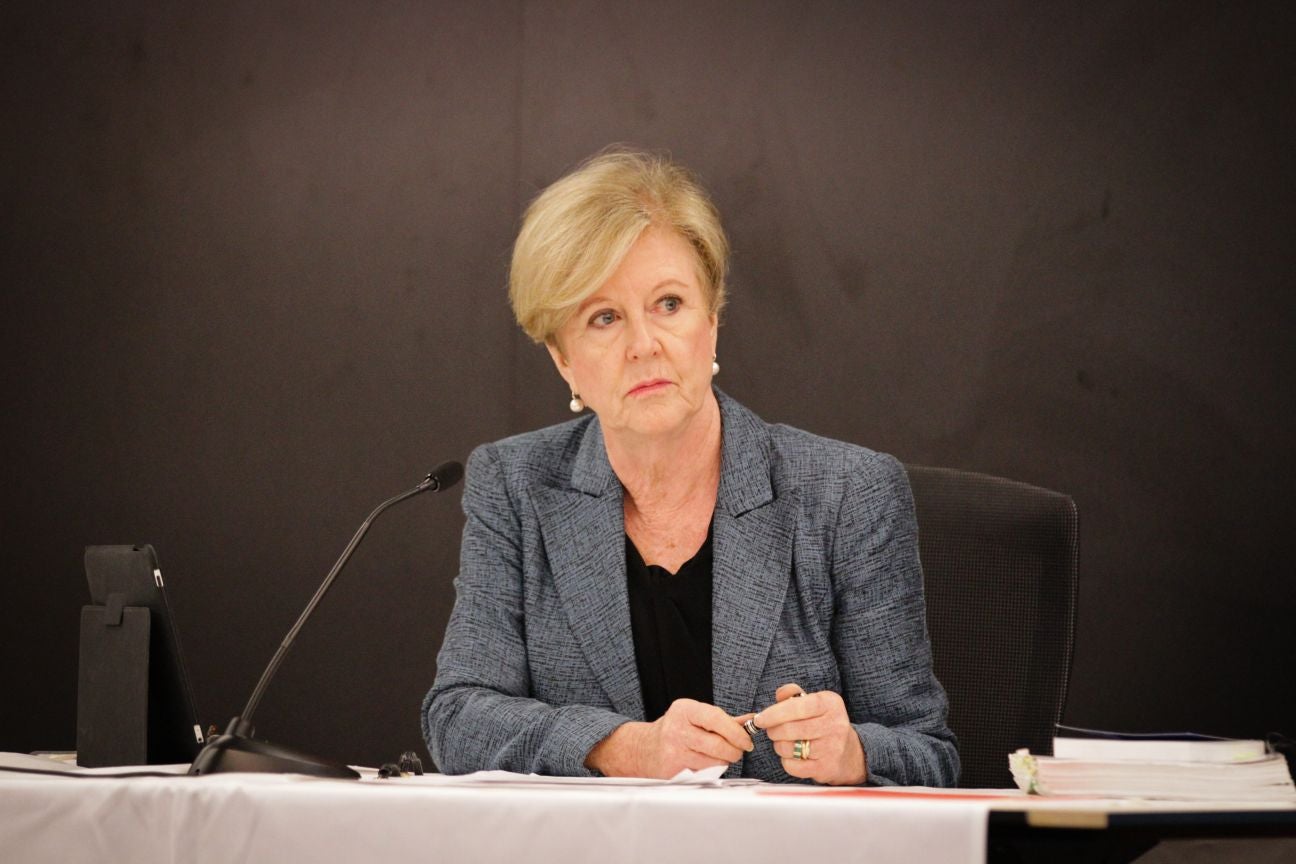Unbroken: Gillian Triggs, the woman who stood up to Australia's PM on human rights and calls for her to quit
The Abbott government makes no effort to disguise its contempt for human rights busybodies

Your support helps us to tell the story
From reproductive rights to climate change to Big Tech, The Independent is on the ground when the story is developing. Whether it's investigating the financials of Elon Musk's pro-Trump PAC or producing our latest documentary, 'The A Word', which shines a light on the American women fighting for reproductive rights, we know how important it is to parse out the facts from the messaging.
At such a critical moment in US history, we need reporters on the ground. Your donation allows us to keep sending journalists to speak to both sides of the story.
The Independent is trusted by Americans across the entire political spectrum. And unlike many other quality news outlets, we choose not to lock Americans out of our reporting and analysis with paywalls. We believe quality journalism should be available to everyone, paid for by those who can afford it.
Your support makes all the difference.Tony Abbott’s government can lock up refugee children indefinitely on godforsaken islands. It can gag the doctors and teachers who attend to these children’s basic needs. But, try as it might, it can’t silence Gillian Triggs, the president of Australia’s Human Rights Commission.
Over the past few months, British-born Professor Triggs has been the subject of an extraordinary campaign to discredit her and force her out of office. The campaign has reached a crescendo in recent days. The eminent international lawyer has been accused of “politicising” the Commission’s work. She has been branded a Labor Party stooge. One minister has called her a “complete disgrace”.
But despite Mr Abbott and his colleagues repeatedly urging her to quit, Ms Triggs has no intention of going anywhere. “Were I to receive warm and congratulatory words from the government on a constant basis, I think that taxpayers would be justified in asking for my resignation, because I wouldn’t be doing my job,” she said.
The former professional ballerina was appointed to head the Human Rights Commission, a statutory body, in 2012 by then Labor Prime Minister Julia Gillard. A former dean of Sydney University’s Law School, Ms Triggs was outspoken in her criticism of Labor’s asylum-seeker policies, which included a bizarre attempt by Ms Gillard to “swap” refugees with Malaysia.
The Abbott government makes no effort to disguise its contempt for human rights busybodies. One of its first acts, on coming to power, was to appoint an ideological soulmate, Tim Wilson, former policy director of the free-market Institute of Public Affairs, as a Human Rights Commissioner. Not long before, Mr Wilson had called for the body to be abolished. Now, though, Mr Wilson is among those publicly defending his colleague.
Ms Triggs, 68, first clashed with the new government when it tried to water down Australia’s race-hate laws last year. Mr Abbott was outraged by a court ruling that a right-wing columnist and friend of his, Andrew Bolt, had racially discriminated against nine fair-skinned Australians whom he accused of identifying as Aboriginal in order to secure jobs and grants. The proposed changes to the law were eventually dropped following a massive community backlash.
What most angered the government was a report by Ms Triggs on asylum-seeker children detained in Australia and in an Australian-run facility on the remote Pacific island of Nauru. Published in February, it detailed more than 300 incidents of actual or threatened self-harm, 33 alleged sexual assaults and 27 hunger strikes. Rather than address its shocking findings, Mr Abbott dismissed the report as a “stitch-up” and a “blatantly partisan, politicised exercise”.
Mr Brandis dispatched a senior civil servant to attempt to persuade Ms Triggs to resign. The government claimed she had delayed her inquiry until the Coalition came to power. Others noted that her report was critical of both sides of the political spectrum. Ian MacDonald, a Coalition senator who chaired a committee examining the report, knew it was biased without even opening it. “I don’t waste my time reading documents that I’m going to take no notice of,” he explained.
In truth, what annoys ministers is Ms Triggs performing precisely the role for which she is paid: monitoring potential human rights abuses, “without fear or favour”.
The government has cloaked its actions against asylum-seekers – including turning their boats around mid-ocean – in secrecy. Nauru now charges A$8,000 (£3,908) for a journalist’s visa – presumably to prevent scrutiny. New laws just passed threaten teachers and doctors working in such centres with two years in jail if they speak out against conditions or pass information to the media.

The latest confected row enveloping Ms Triggs follows a speech in which she noted that, in the light of Australia sending boats back to Indonesia, was it “any wonder that Indonesia will not engage with us on other issues that we care about, like the death penalty?” Ministers immediately accused her of an “outrageous slur” in linking asylum-seeker policies with the executions in Indonesia in April of two convicted Australian drug smugglers, Andrew Chan and Myuran Sukumaran.
Ms Triggs reiterated that she was referring to “the future need to work diplomatically to reach agreement on ending the death penalty in the region”.
This week, she has criticised the “unseemly haste” in introducing counter-terrorism laws and warned that plans to strip terrorism suspects of Australian citizenship constitute an “overreach of executive power”.
Join our commenting forum
Join thought-provoking conversations, follow other Independent readers and see their replies
Comments